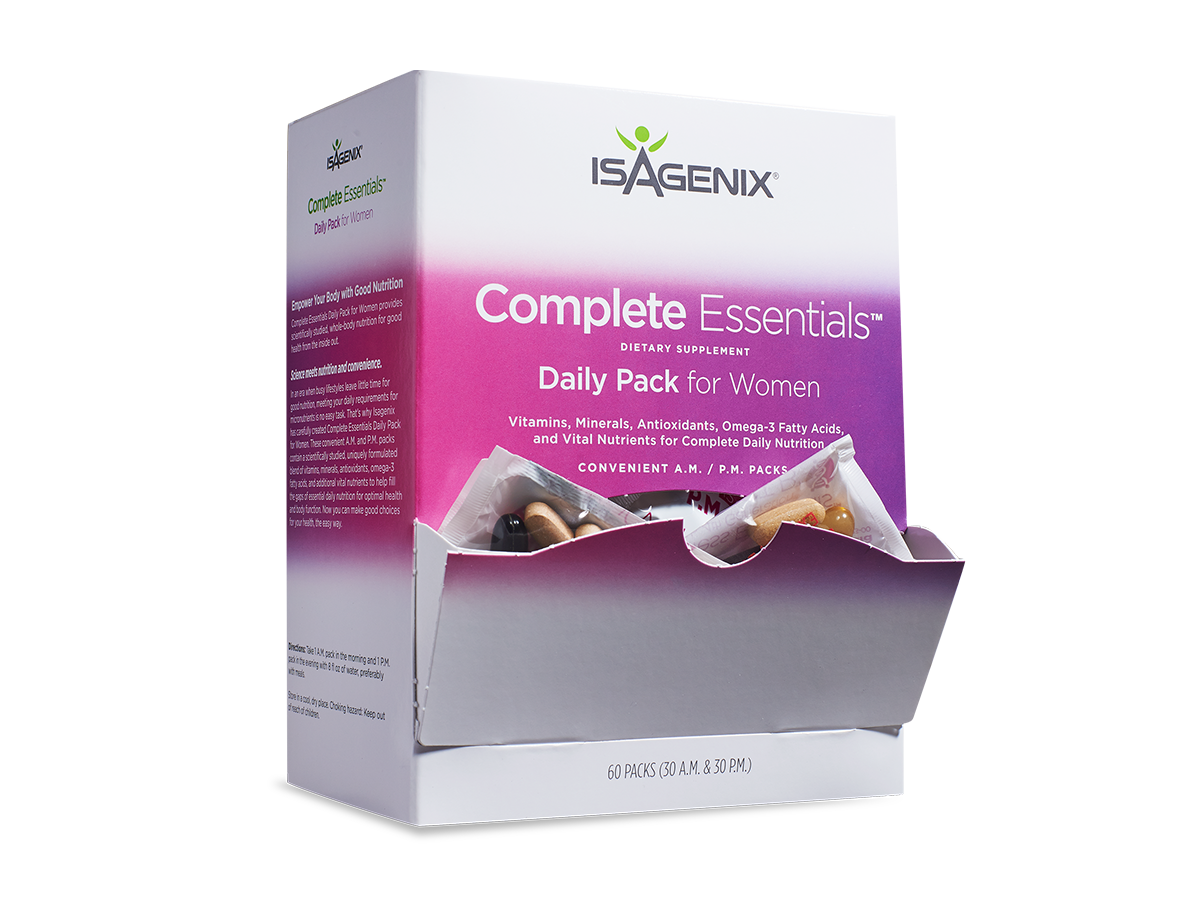Good dietary sources of calcium include dairy products such as milk, yogurt, and cheese in addition to spinach, kale, and calcium-fortified foods like orange juice and cereals. Unfortunately most people shy away from calcium-rich foods due to high calorie content, or they don’t know how much to eat to obtain adequate calcium intake. In fact, two out of five people in the U.S. don’t meet recommendations for calcium (1).
Getting enough is critical because calcium is considered an essential mineral, meaning our bodies don’t make it. This requires we get calcium daily through our diet—otherwise the body will start to pull from bone stores. While this isn’t a problem in the short term, it can become one in the long term, as it can lead to low bone mass (osteopenia) and increased risk of bone fractures.
One study in the American Journal of Clinical Nutrition found that when comparing two groups—one taking a placebo and one taking 1,200 milligrams of calcium—the calcium group had significantly fewer fractures during the four years of the study. Interestingly, after the study and calcium treatment was discontinued, the group did not maintain the benefit of fewer fractures (2).
Even with almost 99 percent of calcium in the body being used to keep bones and teeth strong, the other 1 percent, although small, is critical for normal functioning of the body. For one, calcium plays a key role in cell signaling by activating certain enzymes and transporting ions across cellular membranes allowing neurotransmitters to be sent and received. This communication is crucial for cells to correctly respond to other cells for proper development, rebuilding of tissue, immunity, and normal tissue homeostasis. Calcium also plays a large role in muscle contraction, nerve function, and blood clotting. As an electrolyte in the body, its one of the main contributors to maintaining a normal heartbeat.
Calcium may even contribute to maintaining a healthy weight. It’s been consistently shown in observational studies that the more dietary calcium people consume, the less body fat they have, supporting calcium’s favorable impact on energy balance (3). A clinical trial further suggested that long-term supplementation with calcium may benefit body composition by preventing muscle loss and fat gain (4).
Keep in mind also what you should take alongside calcium. The mineral doesn’t act alone. For adequate absorption of calcium, vitamin D is key. The Women’s Health Initiative found that women who took calcium along with vitamin D (compared to calcium along with placebo) over an average of seven years had substantially less risk for hip fractures (5). Vitamin K also plays a part in bone health, specifically vitamin K2, by contributing to the formation of bone and helping to remove potentially dangerous calcium accumulation within arteries (6;7).
Calcium needs are easily met without exceeding the daily budget for calories through regular Isagenix IsaLean soup or meal replacement shake options. They provide up to one-third of the dietary reference intake (DRI) for calcium. In addition, daily supplementation with Ageless Essentials Daily Pack can help provide optimal morning
and evening doses, with an additional 40 or 45 percent (depending on if you’re taking Men’s or Women’s version) of the DRI.
With Isagenix products including IsaLean Shake and Ageless Essentials Daily Pack, calcium is provided along with the other nutrients necessary for maximum absorption leading to strong bones and a strong body with greater physical function. Plus, it can also help with long-term weight maintenance. It’s convenient nutritional support of calcium, vitamin D, and vitamin K in the right doses for anyone striving to achieve health goals.
References
- Fulgoni VL, III, Keast DR, Bailey RL, Dwyer J. Foods, fortificants, and supplements: Where do Americans get their nutrients? J Nutr 2011;141:1847-54.
- Bischoff-Ferrari HA, Rees JR, Grau MV, Barry E, Gui J, Baron JA. Effect of calcium supplementation on fracture risk: a double-blind randomized controlled trial. Am J Clin Nutr 2008;87:1945-51.
- Prentice RL, Pettinger MB, Jackson RD et al. Health risks and benefits from calcium and vitamin D supplementation: Women’s Health Initiative clinical trial and cohort study. Osteoporos Int 2013;24:567-80.
- Price CT, Langford JR, Liporace FA. Essential Nutrients for Bone Health and a Review of their Availability in the Average North American Diet. Open Orthop J 2012;6:143-9.
- Flore R, Ponziani FR, Di Rienzo TA et al. Something more to say about calcium homeostasis: the role of vitamin K2 in vascular calcification and osteoporosis. Eur Rev Med Pharmacol Sci 2013;17:2433-40.
- Astrup A. How to maintain a healthy body weight. Int J Vitam Nutr Res 2006;76:208-15.
- Zhou J, Zhao LJ, Watson P, Zhang Q, Lappe JM. The effect of calcium and vitamin D supplementation on obesity in postmenopausal women: secondary analysis for a large-scale, placebo controlled, double-blind, 4-year longitudinal clinical trial. Nutr Metab (Lond) 2010;7:62.





